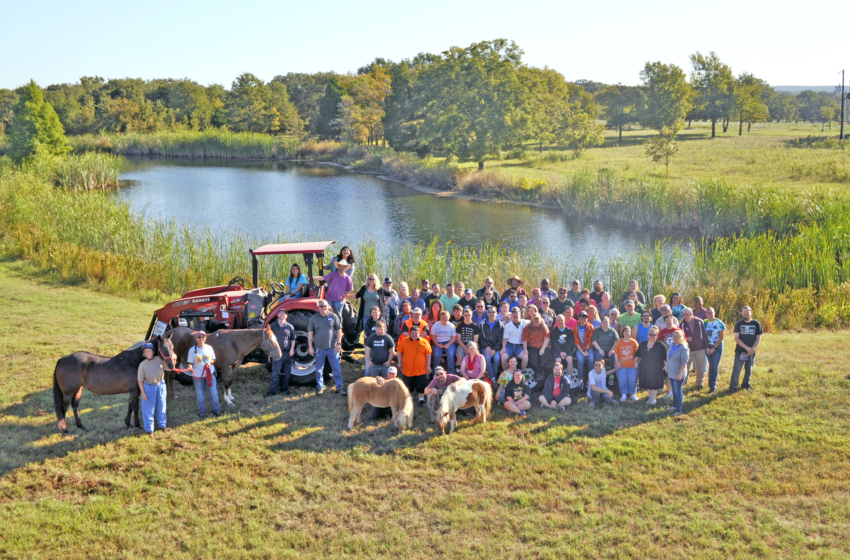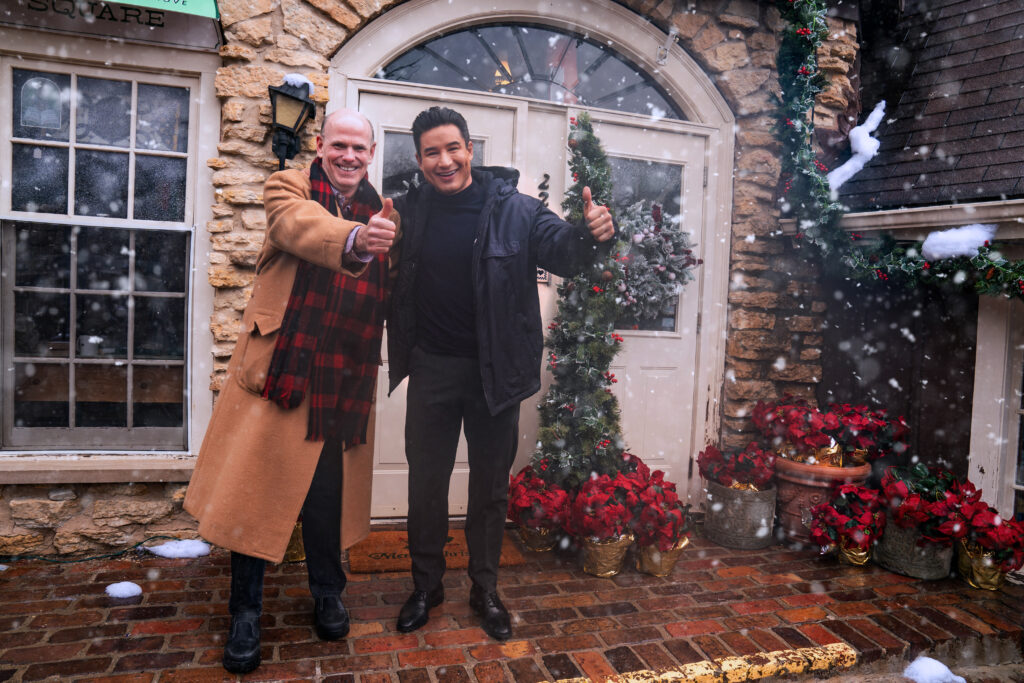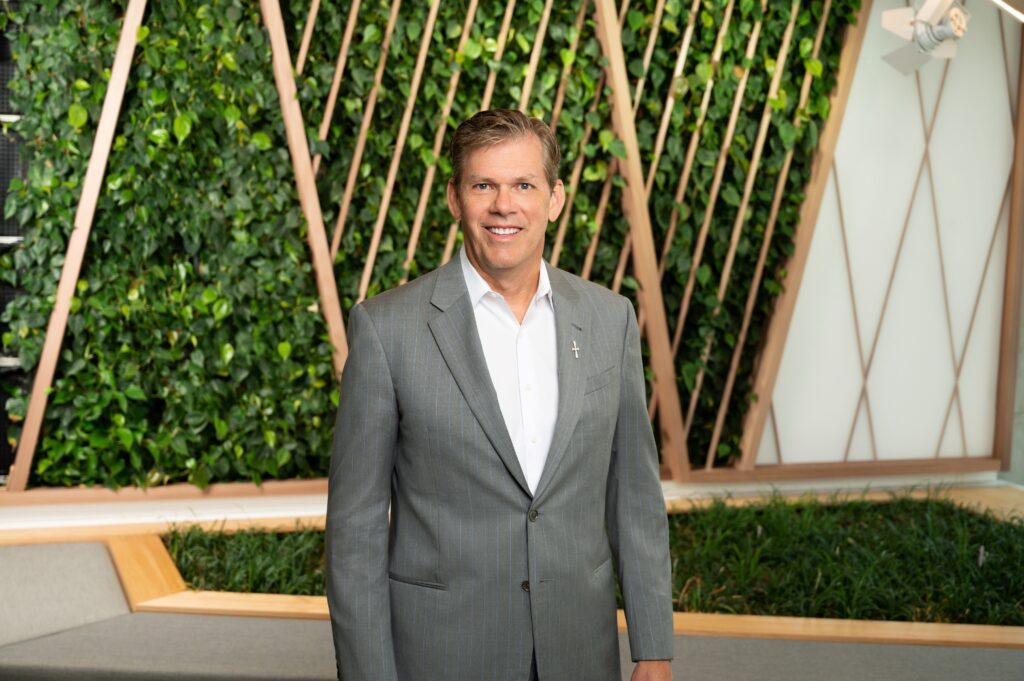A Community of Opportunity

Deep in the Heart of Texas, Down Home Ranch is empowering people with disabilities to live, work, and thrive
In 1985, Jerry and Judy Horton welcomed their fourth daughter, Kelly Page Horton, to the world. Shortly thereafter, they learned that Kelly would live with Down syndrome.
Jerry and Judy immediately went into research mode. They wanted Kelly to have a full life, well beyond the time she left home. But they wondered: Where would she live? How would she sustain herself? Who would her people be?
By 1989, Jerry and Judy had visited many facilities—some inspiring, most not—and created Down Home Ranch, a haven for people with intellectual and developmental disabilities (IDD). Within a couple of years, they purchased a tract of land in Elgin, Texas, a thirty-minute drive from the state capital, and began offering activities for people with IDD in the area.
Today, Down Home Ranch has expanded to 410 acres and serves as a full-time home to 48 residents—or Ranchers, as they are called. Its programs reach many more people with IDD across Central Texas every year, giving them a place to socialize; take part in meaningful, well-paid work; and even create and sell their own products. It is, as Down Home Ranch’s current President, Craig Russell, describes it, a “community of opportunity.” We recently spoke with Russell, as well as Casey Dickerson, Director of Client Services, about Down Home Ranch’s mission and how they fared through COVID-19.

Texas CEO: Let’s start with the basics. What is Down Home Ranch?
Craig Russell: Sure. Our mission statement is “Empowering people with intellectual and developmental disabilities through social, educational, residential, and vocational opportunities.”
So we’re a functioning ranch and a nonprofit that supports people with intellectual developmental disabilities through a residential program, day programs, and respite care.
In the summer, we do Ranch Camp, where people can come out for a week and enjoy the country lifestyle. We do kayaking and archery and swimming. In most respects, it’s your typical summer camp, but geared toward adults with IDD.
Texas CEO: What is the day-to-day like for the Ranchers?
Casey Dickerson: It’s looked a little different through COVID, obviously. But the “normal” we’re getting back to is that Monday through Friday, nine to five, most of the Ranchers are participating in our day program. Every day, they’re able to take part in a variety of activities and outings. On Mondays, the Ranchers have a council meeting where they decide what recreational activities they want to do that week—dances, karaoke, movie nights, going out to eat. We also focus a lot on physical activity, because health is really important to the Ranchers and their families.
Many of our Ranchers are also pursuing vocational opportunities. Not everybody here is interested in having a job, but quite a few do. Most of the jobs are on the ranch, working in the barn with the animals, working in the greenhouses, taking care of buildings, working on the kitchen team. A few people work in town, at HEB, the library, the rec center, places like that.
Texas CEO: How does the residential program work?
Russell: We have a few different options. Onsite at the ranch, we have four intermediate care facilities with live-in staff. Those facilities are supported by government funding. Then we also have a private independent-living program onsite, where the Ranchers live in their own micro houses. Building independent living skills is really important to us. Offsite, we run three community-based homes in Elgin. We’re getting ready to open the fourth. Those people are transported to the ranch daily for activities.
Texas CEO: Let’s talk about the business side of things. How do your work programs and shop work?
Russell: Our business component is called Enterprise. It allows the Ranchers to take part in employment and events. For example, we run greenhouses and sell plants, including lilies in the spring, poinsettias at the end of the year.
Many of our residents are very entrepreneurial and create their own products, like book bags and potholders. We sell them through our online store. They pay us a small percentage to cover supplies that go back into the program, but they get the rest of the money.
We have a CO2 laser onsite that we can use to engrave and customize award plaques, Yeti cups, coffee mugs, things like that. So the Ranchers do that as well. For example, one of our Ranchers learned how to use the laser and put a company’s logo on a bunch of leather phone holders they were giving away for Christmas. We put a nice card in the order saying that these were created by this individual. It’s great to see people learn new skills. That’s also paid employment. Nobody here makes less than minimum wage.

Texas CEO: How did COVID impact Down Home Ranch?
Dickerson: Well, we could no longer get together in groups or go out into the community, so it impacted us a lot. We had to center services in the home very rapidly. We were lucky in that we had this property, with a basketball court and a pool and spaces to go walking. We’ve been able to take advantage of that through COVID.
Russell: We’d never had staff work from home before. But we bought a bunch of laptops and taught everybody [Microsoft] Teams. That’s been very different, but it’s working.
We really had to compartmentalize the ranch too. We wanted the least amount of people around the Ranchers to reduce risk. But we had to keep bringing in funds and keep the programs running as much as we could. Ranch Camp was, of course, canceled last year, but we’ve been jumping through hoops to make sure it can happen safely this year. After we get through the second round of the vaccines, we’re hoping to get everybody back here have some normalcy back into our lives. We’re looking forward to that.

Core Values
Many organizations have mushy core values that don’t mean much—think a list of 10 concepts like “Honesty” and “Respect.” But Down Home Ranch gets core values right. Their four values are distinctive enough to create a unique culture and drive decision. And, notes President Craig Russell, the organization actively looks for these values in hiring.
- Individual Connection with the Ranchers
- Do with, Not for — Lead by example
- Use Your Skillset to Move the Mission Forward
- Be of Service
Get Involved!
Shop Handmade Products
Support individual workers at Down Home Ranch by shopping their wide selection of products—from handmade totes and gift cards to plants and naturally raised Wagyu-Angus beef. Visit the shop at downhomeranch.org today!
Order Custom Tumblers and Coffee Cups
For a quote or more information, email Down Home Ranch at [email protected] anytime or call 512-856-0128 (option 1) during business hours.

Volunteer at Down Home Ranch
Whether you want to volunteer regularly or only have a couple of hours, Down Home Ranch could use your help. “When people come out and spend a few hours, it makes a huge difference in our Ranchers’ lives,” says President Craig Russell. Email [email protected] or visit downhomeranch.org to learn more about opportunities.






